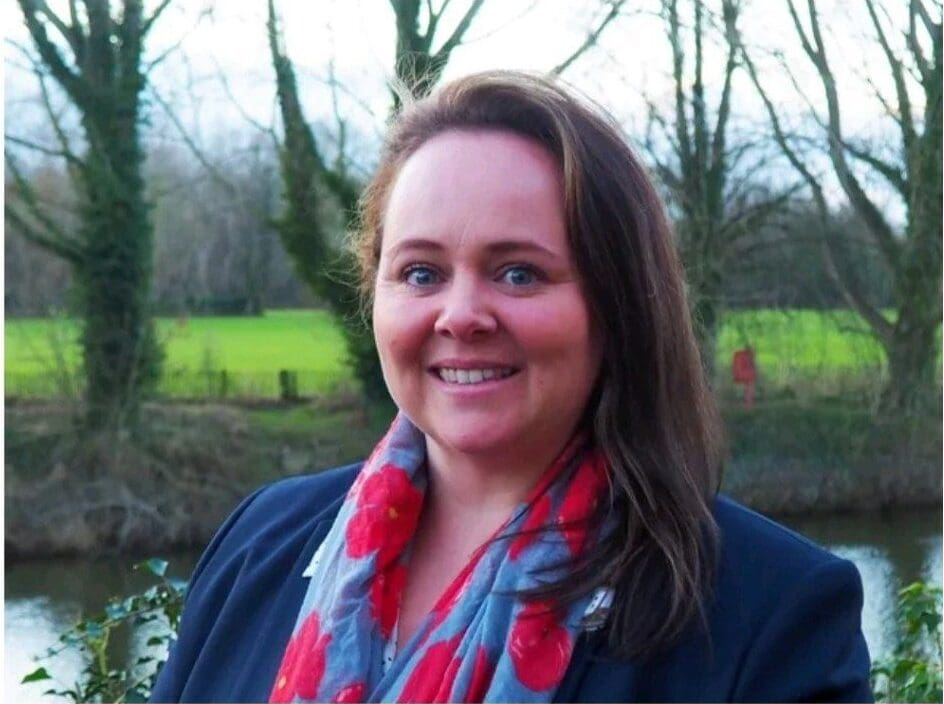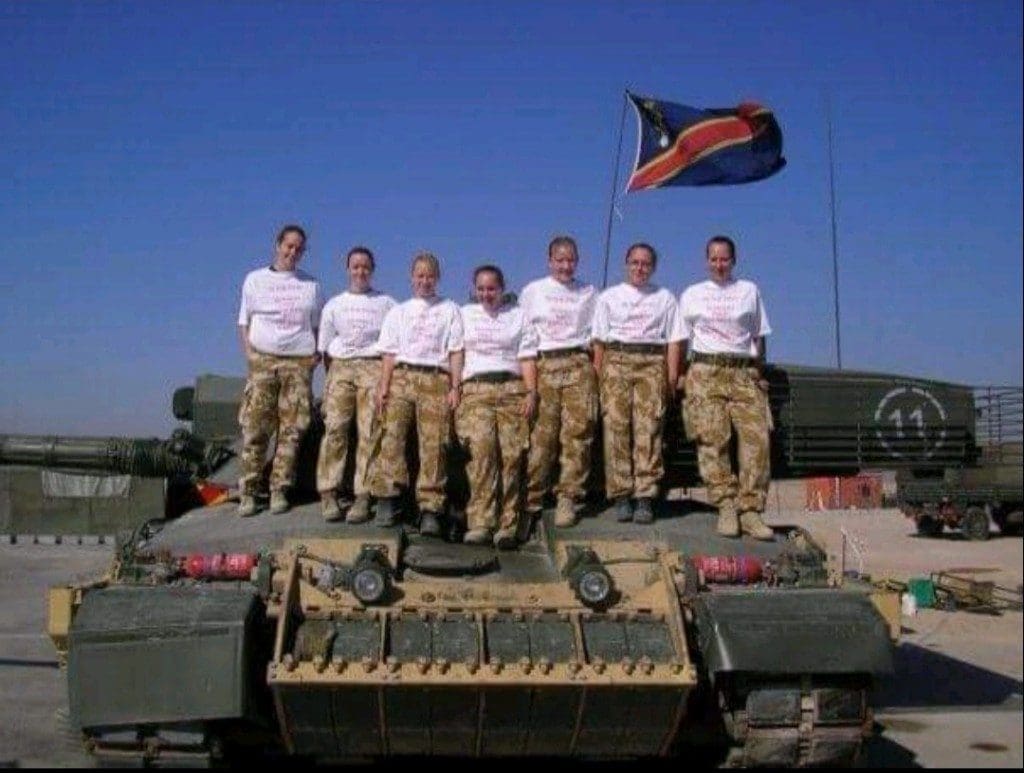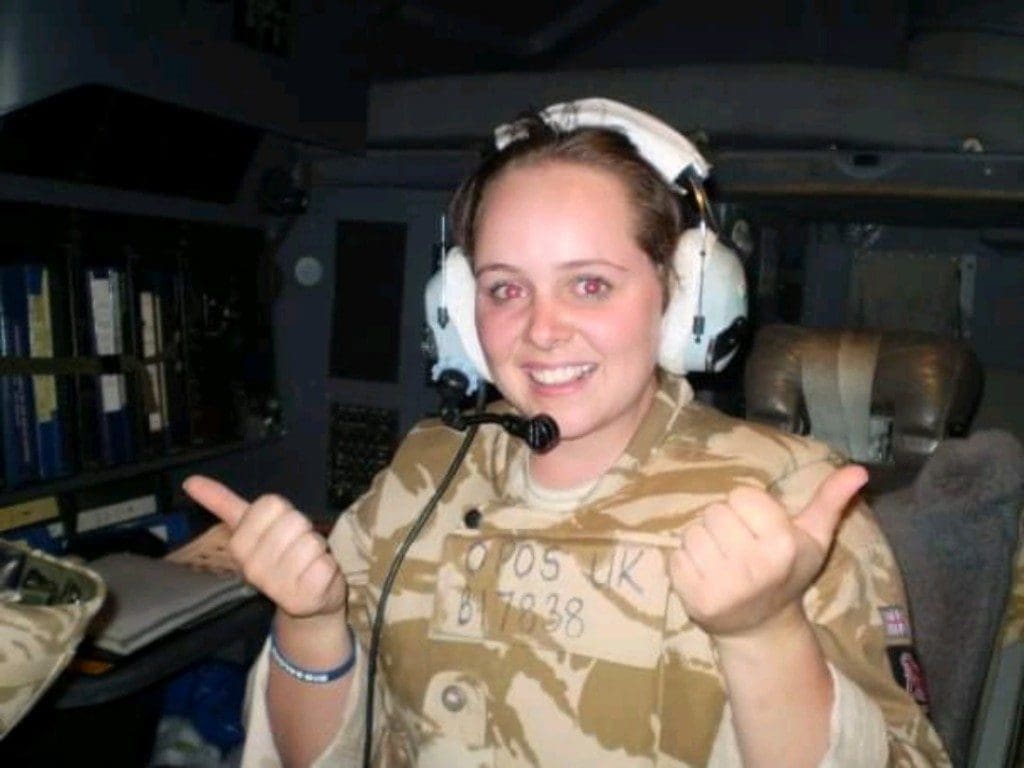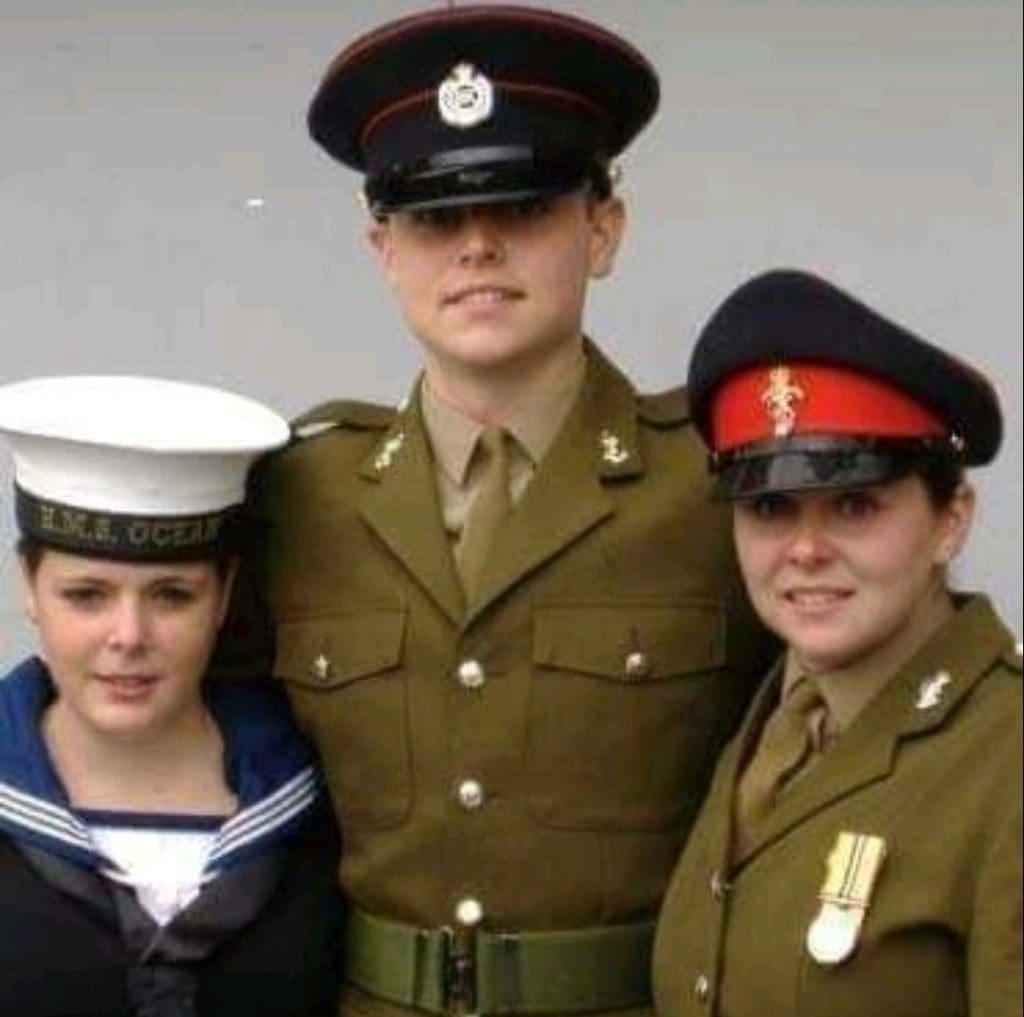Natalie Aixill, Technical Services Engineer, Evora Edge
Natalie Aixill has been an engineer for 20 years now and has worked all over the world – from Jordan and Iraq to Germany and Canada.
In this article, Natalie shares her experience working as a woman Technical Services Engineer, as well as her views on the environment and sustainability.


Background
You started your working life in the British Army. Were you interested in the Army from being a child? Was there a family member who was an influence in your decision to join?
Whilst growing up I had always been surrounded by military connections. Throughout my childhood, I visited family on Army bases. My ancestors were also in the Army serving in WW1 and WW2, so it ran in the family.
The girls at school all wanted to do hair and beauty or childcare but that wasn’t the path for me growing up in Cornwall. The opportunities the Army offered, to travel and achieve higher education qualifications; and to get paid to do so instead of accumulating a student debt was the best logical option for me.
I was always pushed to achieve a trade. Originally, I wanted to become a helicopter and air systems technician, but pathways changed within the Army and land systems became the way ahead for me.


Electronics Technician
Could you give an outline of your role as an Electronics Technician in the Army?
My role as an electronics technician consisted of repairing and maintaining the operational effectiveness of fleets of armoured vehicles and radar systems. As well my role involved managing soldiers’ welfare and educational needs.
My highlights were travelling the world and learning how to ski, kayak, and canoe and all whilst building lifetime friendships.
What was one of your most challenging jobs during your time in the army?
One of my most difficult jobs that comes to mind was to repair a fire suppression system on an armoured vehicle engine. I was in Canada on the prairie, in the dark, during a sleep deprivation exercise, with the sounds of coyotes close by. My training throughout, to achieve tasks under pressure was second to none.
Women in the Army
As you can imagine, being a woman in the army comes with its own challenges. So, to be a female engineer in the army was a true test. There was always the sense I had to prove myself, my worth and my ability, ten times more than everyone else. I would take failures far harder than the men who were my peers.
However, on the other hand I could also celebrate my wins and achievements more than most and feel I had truly deserved them.
What were the challenges you faced?
Challenges I faced were the multiple operational tours to Iraq and keeping on top of fitness and physical tests. One of the toughest challenges was becoming a parent and having to juggle military life with home life.
I quickly learnt the art of the male sense of humour to help me fit in and be accepted as a worthy team member, engineer, and colleague. This was firstly as a soldier and eventually as a leader of men and women within a technical field.
I stayed with the army for a successful 12 years and since leaving, my knowledge has continued to grow. I’ve worked in the British Embassy in Amman, Jordan, and managed offices in Beirut, as a Technical Supervisor and then with Amey as an Operations Manager, overseeing the technical running of various major military sites across central UK.


Transitioning and transferable skills
The most difficult part of transitioning from the Army was the fact that there was no longer any job security or benefits. The work ethics were different, and the sense of humour was hard to adjust to.
However, my years of training courses completed in the military have set me up in my future career.
What were the skills which you took from your time in the Army?
The ability to work under pressure and within a team are some of the best transitional skills that I have achieved.
My tips for others that are finishing their service is to take any course available to you and try to use as much of the excellent education services and funding whilst you can.
Typical week as a Technical Services Engineer with EVORA EDGE
Working with EVORA EDGE has been great. The sense of humour and social side of the company are very similar to the military.
The company summer function, team building day, was a day out on the river in canoes. Then we had a black-tie event for our Christmas function.
The working environment is a lot more relaxed, and the work/home life balance has definitely been achieved.
Education and training are at the forefront of EVORA EDGE’s agenda and within my first year I’ve already completed:
a mental health course,
FGas (Fluorinated gas) course,
and an Electrical services course.
I have another two courses – mechanical and energy engineering – programmed in for the near future.
Which other parts of the organisation give you support?
The whole company work as a team and if I do not know the answer to a specific area I’m working with, then someone is always there to pick up the phone for advice and guidance.
Technical Asset Manager/Services Engineer
My role within EVORA EDGE is a Technical Asset Manager. This means that I work as an engineering consultant whose main purpose is to audit commercial portfolios and provide technical support and advice. This involves spending my days in the plant rooms and developing my knowledge about sustainability and how to overcome the challenges we face in this area.
I like that it allows me to travel to various cities and meet lots of new people. It is definitely a steep learning curve from my previous roles, but the support is there to help me succeed.
My hopes for my future career are to become an appointed person for the company, in the expansion of our Energy Survey delivery, supply and project management of sustainable energy sources, solar and wind. I would also hope to expand our recruitment facility by attending recruitment fairs and roadshows.
What is your typical month like?
My typical working calendar is split up into 3-monthly sections.
For one month I am travelling the country visiting my 40+ sites. This involves completing the onsite audit all the way from Exeter and the far reaches of Llanelli in Wales up to Newcastle and Manchester and everywhere in between. There are many miles covered but I enjoy the travelling as much as the work itself.
My second month is a report write up month with managerial meetings to discuss sites.
Then my third month is to attend any courses, clear up emails and project quotations and prepare and schedule the calendar for the next round of visits. At the same time offering technical consultation to our clients.
Health and Safety
Health and safety are always key when visiting sites. That is predominantly what I am there to assess myself. The aim is that we can keep the building to statutory safety standards and running efficiently to get the best possible lifespan with the least amount of adverse effect on the environment.
Do you have any difficulty finding PPE which fits?
I don’t have any issues with the PPE now, although there were issues with this previously within the military. These issues are now being addressed with more attention being paid to the fitting for female bodies and steering away from the predominantly male based modelled PPE.
Carbon neutral/Carbon positive
My thoughts towards sustainability and a carbon neutral world are that the understanding of the dangers of our current situation needs to be spread further.
Much of the world is still oblivious.
I have seen firsthand that different areas of the world have different views on generated waste and methods of processing this.
There is not enough fear generated through understanding. I believe it needs to be filtered down, simplified, and the knowledge spread. The objective being that the whole world has a clearer picture and a shared vision and action plan, for the severity of the repercussions to come, from the accelerating detrimental effects of climate change. There is not enough being done globally and generationally.
An academic change is needed to effectively change our behaviours to reduce the carbon footprint and solve the climate crisis. 2030 is too long to wait.
At EVORA EDGE our job is to:
transfer existing buildings instead of demolition to optimise building volumes,
use energy efficient technical systems to reduce carbon footprints, strive for net zero carbon,
and to minimise the climate impact.
Women in Engineering
It was International Women in Engineering Day on June 23rd, how do you feel part of this?
For me, Women in Engineering Day is about taking the time to feel proud that I’m playing even just a small part in showing that engineering is a viable career for women. As well, hopefully creating a positive image of the sector and helping inspire a future generation of female engineers.
I passionately believe that having a more inclusive engineering sector is fundamental to our ability to develop better and more global sustainable technology-based solutions to combat the climate and energy issues we are facing. Some of the greatest inventions to date were created by women yet still we find ourselves constantly battling the common stereotype that engineering is not a female career path, and it remains a heavily male dominated sector.
I’m excited to see those ratios gradually changing (the current percentage of women in engineering today is only 16.5% but that is still an increase from 10.5% in 2010). It is steadily becoming a more popular career option amongst female school leavers.
Choosing to work in engineering
Why would you recommend engineering and field service engineering as a career to other women?
A career as an engineer is about continuously adapting to keep up with the technological advances that are happening at a phenomenal rate across the world. There will always be something new to learn or something to fix. In my case, I’m forever looking for new courses to expand my engineering knowledge.
The career opportunities and pathways are endless. If your head is full of inventions and ideas; if you have a passion for fixing things and a keen eye for problem solving, then an engineering career is the way forward. I would say to all those girls out there considering it – do it and show the world that women do have a major place in the engineering field.


Further reading
Why Ex-Military personnel transition into great civilian Field Service Engineers
A US Navy veteran who installs and services baking production line equipment for Kaak North America


Responses